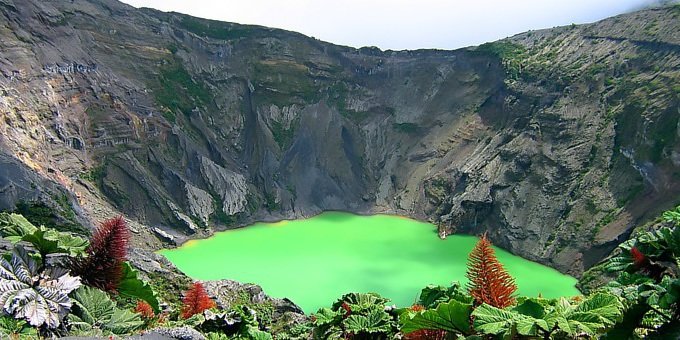The Irazú Volcano is now considered to have dangerous potential, following the discovery of new evidence about the seemingly sleeping volcano. Recently, a bubbling lagoon formed in its crater, pointing to a higher level of activity.
There are now fumaroles, springs of hot water, volcanic material and frequent seismicity so experts are on alert for action from the volcano which is still active but in a state of rest since 1965.
Scientists from the Volcanological and Seismological Observatory of Costa Rica (Ovsicori) visited to document changes in the beginning of March. A volcanologist descended to the lagoon of rain water with a depth of 10 meters. Even with strong winds, bubbling points were visible to the naked eye. This is from an underwater crack. Sophisticated techniques will be used to sample gases in the future.
Over the last century, the volcano went into activity seven times. The last period of strong eruptions was between 1962 and 1965. There are no immediate problems from the changes observed but they could be a sign of reactivation.

